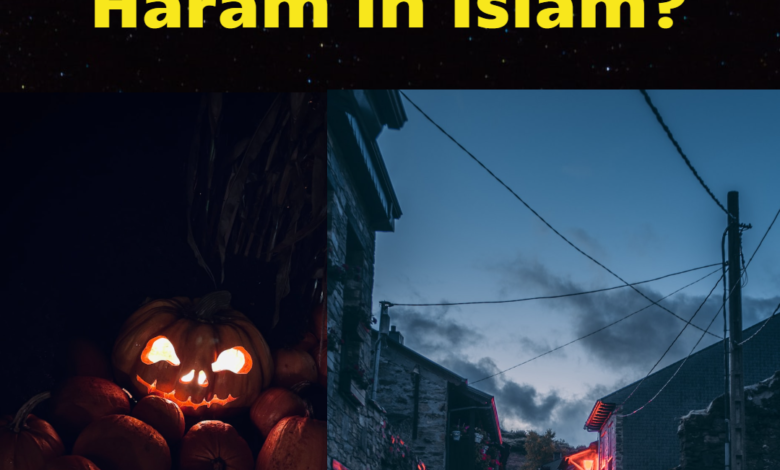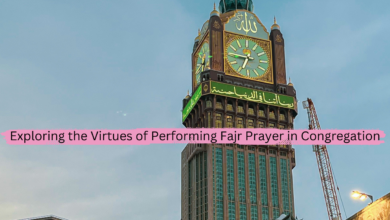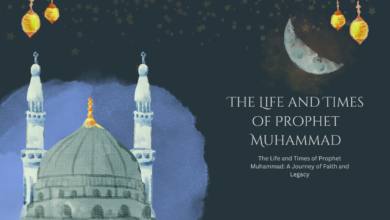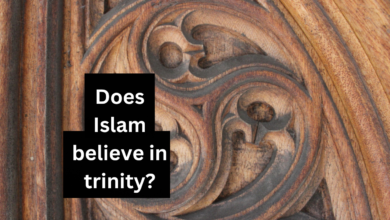Is Halloween Haram in Islam?

Introduction
Halloween, a holiday celebrated on October 31st, has become a widespread cultural phenomenon in many parts of the world. It is characterized by costume parties, spooky decorations, and the act of trick-or-treating. However, in the context of Islam, the celebration of Halloween raises questions regarding its compatibility with Islamic teachings and values. This article aims to explore whether Halloween is considered haram (forbidden) in Islam and to provide a nuanced understanding of the subject.
Understanding Halloween
Halloween’s origins trace back to ancient Celtic traditions and later evolved through Christian practices. In modern times, it has become a secular holiday marked by fun activities, themed parties, and the exchange of candy. It’s important to differentiate between the cultural and religious aspects of Halloween when discussing its permissibility in Islam.
The Concerns
Opponents of Halloween within Islamic communities often cite several concerns as reasons for deeming it haram:
Pagan Origins: Some argue that Halloween has pagan roots and that Muslims should avoid participating in activities that have non-Islamic origins.
Imitating Non-Muslim Practices: Mimicking the practices of non-Muslim cultures can be seen as a form of imitation (tashabbuh), which is discouraged in Islam.
Associations with the Occult: Halloween is often associated with supernatural and occult themes, including witchcraft and ghosts. These elements could conflict with Islamic beliefs about monotheism and the prohibition of engaging in practices related to magic or the unseen.
Inappropriate Costumes: Some Halloween costumes can be immodest, revealing, or disrespectful, which goes against the Islamic values of modesty and decency.
Islamic Perspective
It’s important to approach this topic with a balanced view, acknowledging that opinions within the Islamic community can vary. Islamic scholars and jurists have differing perspectives on Halloween, resulting in a range of opinions:
Prohibition (Haram): Some scholars hold the view that Halloween, due to its pagan origins, associations with the occult, and imitating non-Muslim practices, is not in line with Islamic teachings and should be avoided.
Permissibility (Halal): Other scholars argue that Halloween’s contemporary celebration has largely detached from its pagan roots and religious connotations. They contend that participating in the cultural aspects of Halloween, such as costume parties and social gatherings, without engaging in any prohibited activities, might be permissible.
Middle Ground (Makruh or Mubah): Some scholars take a middle-ground approach, suggesting that while Halloween might not be strictly forbidden, Muslims should exercise caution and be mindful of the potential pitfalls associated with certain practices.
Conclusion
The question of whether Halloween is haram in Islam is a topic that sparks diverse opinions among scholars and individuals within the Muslim community. It is essential to approach this discussion with respect for different perspectives and to make informed decisions based on one’s understanding of Islamic teachings and personal convictions.
For Muslims who are concerned about the potential conflicts between Halloween and Islamic values, it’s advisable to prioritize adherence to core religious principles and avoid engaging in practices that may contradict these principles. At the same time, recognizing the cultural context and evolving nature of celebrations like Halloween can help strike a balance between maintaining one’s faith and participating in a multicultural society.
Is Halloween celebrated in Islam?
Halloween is not a religious holiday in Islam. It originated from ancient Celtic and pagan traditions and has been commercialized into a secular holiday characterized by costumes, decorations, and activities like trick-or-treating.
Is Halloween mentioned in Islamic teachings?
No, Halloween is not mentioned in Islamic teachings as it is not part of Islamic culture or history.
Is it permissible for Muslims to celebrate Halloween?
Opinions among Islamic scholars vary. Some scholars consider Halloween celebrations, especially those involving themes of shirk (associating partners with Allah), to be inappropriate and incompatible with Islamic beliefs.
What aspects of Halloween might conflict with Islamic beliefs?
Halloween decorations and costumes often include imagery associated with witchcraft, sorcery, ghosts, and other supernatural elements. Engaging in these aspects may inadvertently involve Muslims in themes that contradict their faith.
Is dressing up in costumes for Halloween allowed in Islam?
Dressing up in costumes is a cultural aspect of Halloween. While wearing costumes for fun may not inherently violate Islamic teachings, Muslims should avoid costumes that promote indecency, immodesty, or cultural insensitivity.
Can Muslims participate in Halloween parties or events?
Participation in Halloween events should be approached with caution. Muslims must ensure that their participation does not lead them to engage in activities contrary to Islamic values.






